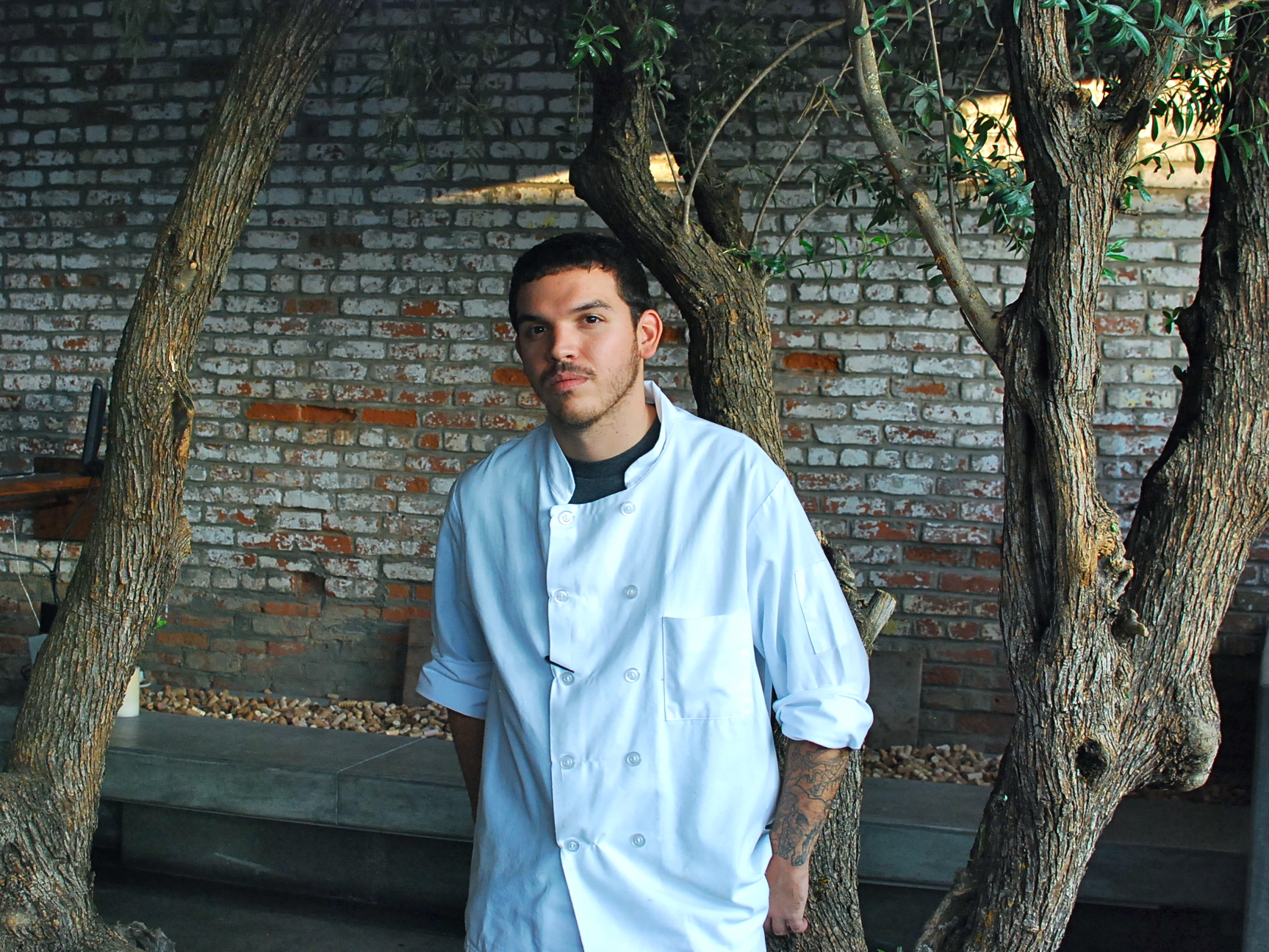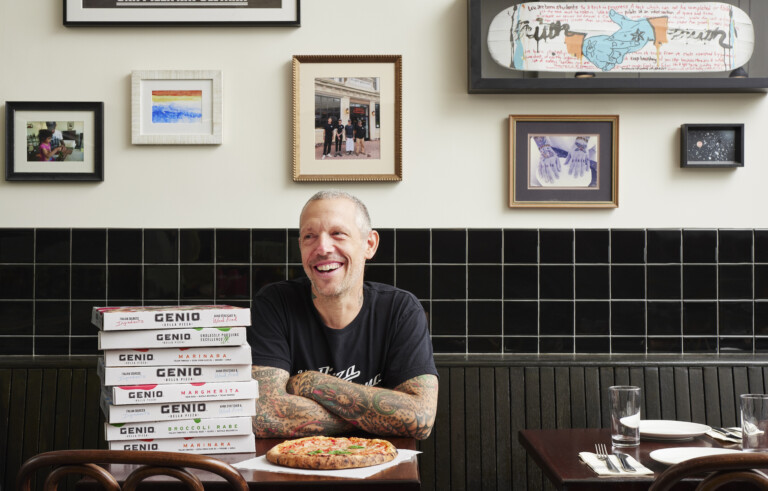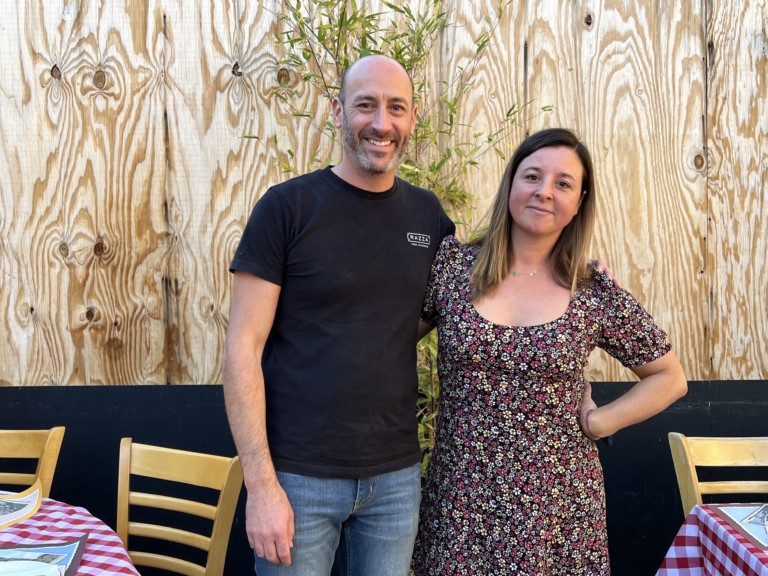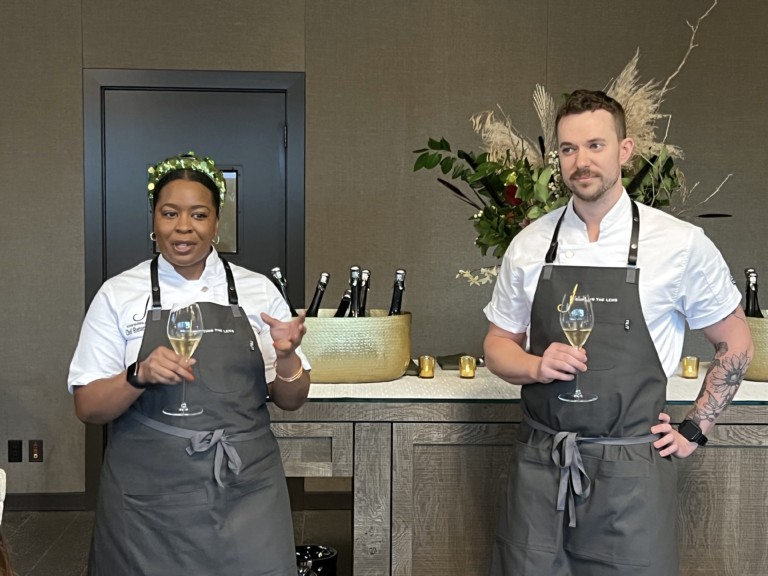El Paso native Casey Lane has experienced an impressive progression since he worked at clarklewis in Portland. In 2009, he and some fellow Portlanders set their sights on SoCal and transformed Venice’s short-lived AK into The Tasting Kitchen, which quickly jumped to the forefront of L.A.’s seasonal, farm- and butchery-driven cuisine. Early next year, he’ll simultaneously helm the kitchen at an English inspired restaurant in downtown’s Fashion District, complementing his Italian and Mediterranean cookery on the Westside. On November 15, we met at The Tasting Kitchen, and Lane better explained his connection to the kitchen and culinary philosophy.
What was your very first night like in a professional restaurant kitchen, and where was it?
I think it was at a hotel resort in New Mexico and I think I realistically just gathered, even at a very young age, that everyone involved in this industry generally has an incredibly excessive personality. I really enjoyed being around all of those people with that same uber, over-the-top excessive personalities, because it led to both great things and a lot of fun in the same day.
What do you look for when you’re hiring someone to work in your kitchen?
I am looking for someone who understands that they’re here to complete a singular vision and that they are going to be reliable and dedicated. And dedicated doesn’t mean that you talk the talk. Dedicated means you finish your steps, that you finish your thoughts, and if something’s not perfect, you’re willing to scrap it and start over with no ego involved about, “Oh, I wasn’t good enough.” It’s not good enough for us. We need to do better before we sell it.
What is the criteria for a dish that goes on the menu here?
It had better taste good, it had better look good and it better have something in the way of a heritage involved in it. I’m not in to creating something that no one’s ever heard of before, necessarily. One of the things I was taught very early on, and this may sound un-creative, whatever it is, something that made me fall in love with cooking as a whole is that people have been doing this for thousands of years. If you’ve never heard of it before, it’s probably because it wasn’t good when somebody did do it at some point. Then they realized it’s just not that good. We like to stick to the heritage of the craft, we like to stick to tradition, but then putting those together, either one. With the bucatini, it’s a dish that’s been done for 300 years, but we took it to another level because we make every single portion, the way that it was made before. Or with taking those combinations and creating something new, or a new twist on it, but still relying on that basis of history and heritage to lead the way and set down the foundation for that plate.
Do you currently have any off menu dishes?
We definitely do a lot of off menu dishes. That’s kind of my daily exploration of crazy, because we do the tasting menus, and I want the tasting menu, as much as it is an array of what is on the menu, and things that people see and they’re like, “Oh, I don’t want to miss out on understanding what this restaurant is about,” but at the same time we have a lot of regulars that order these menus a lot, so you want to sell them something off the menu that doesn’t hit. Honestly, sometimes they just take too much time to make 40 orders of it, so I can only make six, for those six people that night, they get to have it.
One of them right now would be a beef and mushroom crudo with porcini mushrooms, pioppini mushrooms, Wagyu sirloin, and we’re using a little bit of black truffle conserva, a little bit of red onion and breadcrumb, and that’s about it.
Tomorrow night, it’s going to be one of the more fun dinners we’ve ever done because Rudy from the Wine Hotel is holding one of his wine dinners here, so I’m doing seven courses, three desserts, four savory, and 3-4 amuse for him. Those are all going to be individually plated, which is something we never do here, but the menu we created for him is going to be a lot of fun and very off character in a way that hopefully sometime in the future I only have 35 seats and can make enough money to pay rent, that’s going to be what we do there, but definitely up in that upper echelon of plating and precision and just a little bit different from what we do here.
What would you like to be known for as a chef?
I would love to be known as someone who loves the heritage and loves the craft, and who not because I disagree with anybody else’s use – do whatever you want, it’s who you are – who I am as a cook is very much doing things in that same respect that we were talking about before, which is by hand, the full process, the way that they were done in Rome initially. The way rillette was done initially, it was an effort of preservation for the meat. It wasn’t just something, “Oh, this tastes good because it’s confited, so let’s just use duck fat instead of actually brunoising 1000 grams of pork fat and rendering that out so that it’s cooked in its own fat and it’s preserved because they had an animal and they needed to use that animal, not because they had access to short cuts and ways to loop around so that it wasn’t so much work. Through that I think you get a better result and a better flavor and you feel better about what you just accomplished.
If you could only cook with one more protein, what would it be, and how come?
It would have to be pig, as generic as that sounds, only because there are so many different things that are possible with it. Any other protein you’re looking at, sure, there may be 50 things you can do with it. With a pig, there’s hundreds. You may never stop learning what else to do with a pig because it’s so useful.
What was the last meal you cooked at home?
We did whole roasted branzino with room temp marinated but roasted Brussels sprouts with pancetta.
What’s the key to a good version of that dish?
Definitely a good sherry vinegar for the Brussels sprouts, is the key. And then quality fish.
Who’s a person you’ve never cooked with before that you would most like to cook with?
Mark Ladner.
How come?
I think it’s just a lot about having read about Mark Ladner, and seeing the person that he is. He hates coming out of the kitchen. He doesn’t like coming out and talking to people, even though he admits it’s something he needs to work on. But the meals and the food at Del Posto, which is the kitchen he calls home, even though he helped develop Lupa and Otto and opened Babbo with Mario. What he began doing at Del Posto, I think, even if purposefully they’re trying to beat people over the head with the best Italian restaurant in the world, actually succeeding at that is something to be incredibly proud of, and I can not imagine a more grandiose setting, from both design to service to actually what hits the plate, than Del Posto, and he runs it day-in and day-out without a hitch.









Blog Comments
Miriam
October 5, 2012 at 10:09 AM
Have a reservation next week for my husbands birthday (we’ve been talking about going to such a long time) and am even more excited to know he came here from Portland…one of my very favorite cities #BAMfest